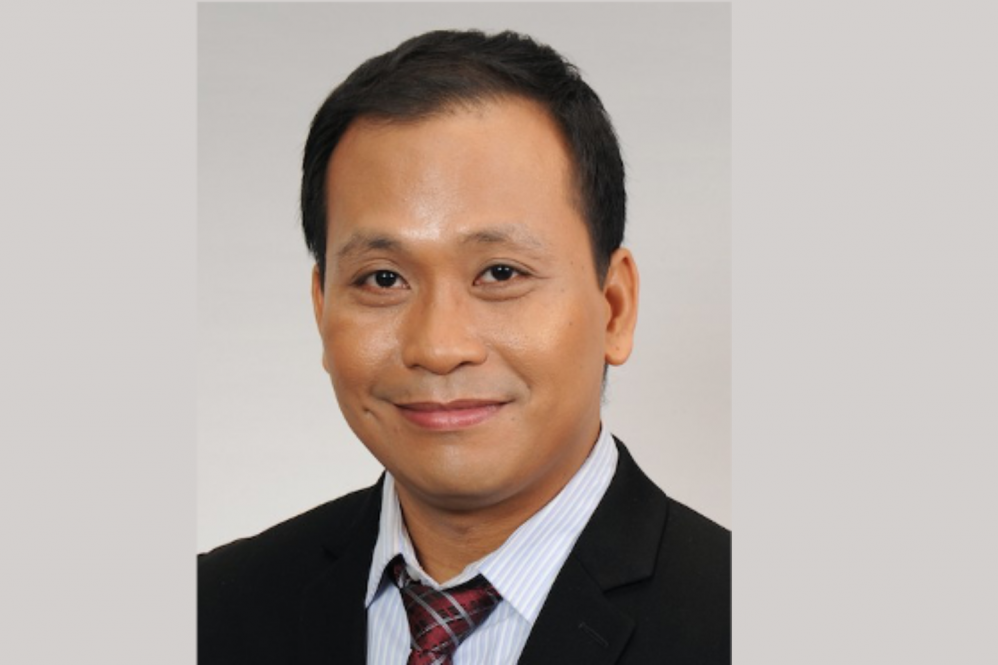UConn School of Medicine Postdoctoral Research Fellow Rogie Royce Carandang honored by The Journal of Public Health and Emergency

Postdoctoral Research Fellow Rogie Royce Carandang of the Department of Public Health Sciences at UConn School of Medicine.
The Journal of Public Health and Emergency (JPHE) has named UConn School of Medicine Postdoctoral Research Fellow Rogie Royce Carandang of the Department of Public Health Sciences a 2024 Outstanding Author. He is recognized for making outstanding contributions to the journal and immense efforts in research. Carandang's research focuses on Maternal and Child Health (MCH) and Gerontology.
His most recent publications in the JPHE journal include:
- Facilitators of and barriers to accessing prenatal care services in primary healthcare facilities during the COVID-19 pandemic in Manila, Philippines: a qualitative study.
- Parenting experience and behavioral changes in children diagnosed with autism spectrum disorder during the implementation of the new normal in Metro Manila, Philippines.
Carandang is a social epidemiologist specializing in life course research. He holds a degree in Global Health and Gerontology from The University of Tokyo, Japan. Previously, he was an Assistant Professor at the Department of Community and Global Health at the same university. Currently, he is a Postdoctoral Research Fellow at UConn School of Medicine. He has contributed to creating both the Russian version and digital prototype of the MCH Handbook, which integrates records for both mother and child. In the US, he is actively involved in Expect With Me, a group of prenatal care model aiming at improving perinatal outcomes, and Obstetric Life Support Training, which equips healthcare workers in rural and low-resource settings with skills to prevent, evaluate, and manage maternal medical emergencies. Carandang is engaged in research both within and outside the US. Follow him on LinkedIn, ORCID and Google Scholar.
Carandang recently participated in a Q & A with the Journal of Public Health and Emergency (JPHE):
Q. What are the key skill sets of an author?
A. To be a great author, you should possess three essential skills. First, you must be a good storyteller, captivating your audience with compelling narratives throughout your academic paper. This style demands creativity to ensure readers remain engaged from start to finish. Second, writing with empathy is crucial, especially when researching marginalized and vulnerable communities. As an author, you act as their advocate, amplifying their voices to influence policymakers and government officials to implement tailored programs and policies. Remember, your research endeavors aim to effect positive change within your community, ultimately improving lives. Lastly, possessing grit is indispensable. Writing can be challenging and solitary, requiring authors to persevere, remain passionate, and demonstrate resilience in facing challenges and rejections. Rather than seeing setbacks as deterrents, view them as opportunities for personal growth and development.
Q. How to avoid biases in one's writing?
A. Avoiding biases in writing requires a conscious commitment to objectivity. First, authors should recognize their own biases and assumptions, particularly in qualitative papers where their influence on the research process is significant. Reflexivity is crucial as it enhances the rigor and validity of research. Second, authors must conduct thorough research from diverse sources and employ triangulation to improve validity and reliability. Triangulation involves using multiple methods, data sources, or theories to study a research question or phenomenon. For example, data triangulation can be achieved in mixed methods research by comparing information from various sources like document reviews, surveys, and interviews, providing a more comprehensive understanding. Finally, obtaining feedback from co-authors helps identify and address biases. A fresh perspective can uncover blind spots, improving the overall quality of the work.
Q. Academic writing takes a lot of time and effort. What motivates you to do so?
A. Writing does indeed require a significant investment of time and effort. My motivation stems from a desire to contribute to knowledge, make an impact, and pursue my passion for the subject. Publishing my work in peer-reviewed journals offers an opportunity to contribute to my field's collective body of knowledge. Knowing that my research can advance science and influence the broader public is highly motivating. Coming from an underprivileged background, I am passionate about making a difference in my community. Through my research, I advocate for marginalized and vulnerable populations. It brings me joy whenever my work influences policies and practices for the greater good.






